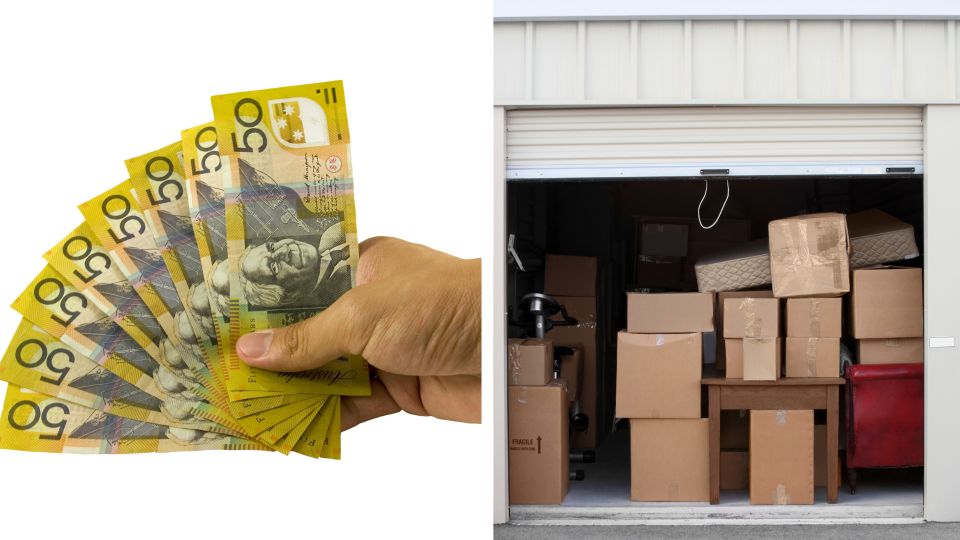Why these storage units just sold for $298,900

Shoppers in southern Sydney have bought storage units for as much as $289,900, in what is a surprising investment trend.
The iSpace Storage centre was reported as selling out on Thursday with buyers and investors forking out between $112,000 and $298,900 for a 49 square meter unit.
The remaining units are being rented out for an annual net return of about six per cent.
According to the August 2018 data from the Urbis Storage Index, despite a slowing in the average storage fee rate, investors’ income from storage units has increased to an average $130 income a month.

J S Iverach Real Estate specialises in investors looking to invest in storage units.
As his firm explains, the interest in this investment comes down to the average return of around 6 per cent, no council or water rates, residency laws or tenant disputes.
And people need storage
Self-storage firm, Steel Storage explained that self-storage units consistently outperform other forms of real estate like homes and office building.
“The chief reason behind this success is that, no matter how poor the economy is, people are still going to move, inherit stuff they can’t use, and downsize. These people are going to need someplace to store their stuff safely and cost-effectively,” the firm said in a recent blog.
“Properly maintained self storage units provide investors with a lucrative income and, if run effectively and smartly, can be sold at a later date for a sizable profit.”
While the Australian residential property market is slowing, it’s still considered “severely unaffordable” by international standards.
This means a lot of home-buyers and renters are re-considering larger, more expensive homes in favour of smaller homes and offloading their excess stuff to self-storage units.
But they’re also used for vehicles, wine storage, musical instruments and by businesses requiring off-site, or part-time storage.
Challenges
According to investment firm, Home Loan Experts, investors may need to deal with a high vacancy rate.
In fact, the Self Storage Association of Australia estimates that at any one time, one in five self-storage units are empty.
However, as a general rule, storage units in industrial zones and close to motorways will do better.
It can also be difficult to convince a bank to lend for a self-storage unit.
“The main concern why some banks are conservative is that storage units are purpose-built and can’t be easily converted to another industrial or commercial business purpose,” Home Loan Experts explained.
Thinking outside the box with storage
You don’t always need to buy an already-built unit to reap the benefits. If you already own space, you could set up your own storage unit that you can rent out.
Investor Eoin Doyle bought a mixed-use property with a retail hairdresser on the lower floor and a three-bedroom unit on top.
“I kept looking at the big backyard that was always unused and decided I would try maximise the value of it by upgrading the existing shed with water and electricity and actually buying shipping container and upgrading that too,” he told Yahoo Finance.
“Both proved very attractive to tradies who may live quite far out and don’t want to be hauling all their tools and materials to every job.
“As we become more urbanised society particularly living in apartments I think the need for storage will grow and many older properties come with big backyards that could be upgraded for storage.”
Make your money work with Yahoo Finance’s daily newsletter. Sign up here and stay on top of the latest money, news and tech news.
Now read: Pensioners to score $250 travel card under new plan
Now read: 500 people have shared where they think inequality is worst in NSW
Now read: Bank victims could get $2 million under Labor plan

 Yahoo Finance
Yahoo Finance 
